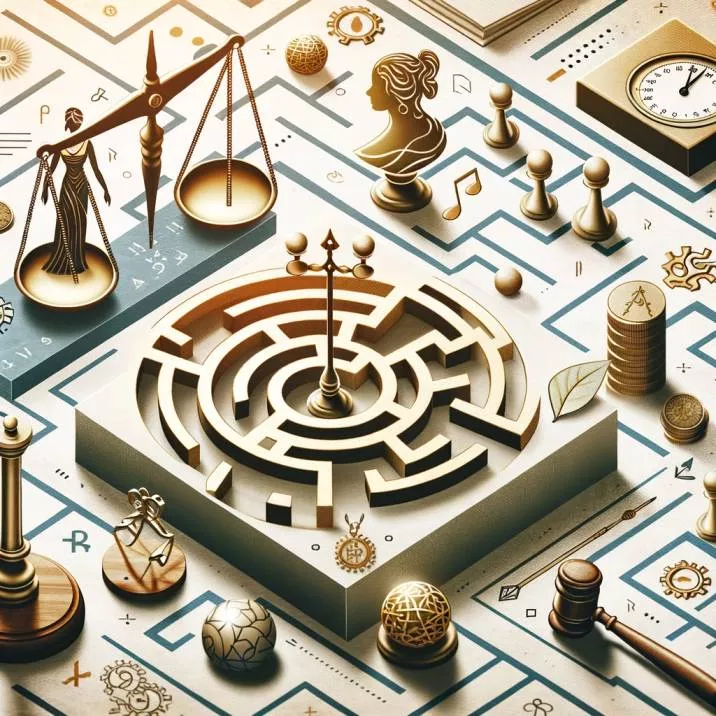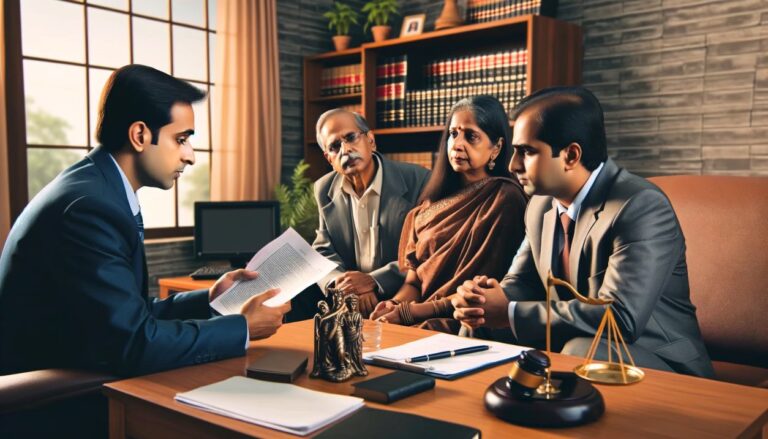In this article we have explained How to Find the Best Divorce Lawyer Near Me.Finding the right divorce lawyer in India can be a challenging task. A good lawyer can make a significant difference in the outcome of your divorce case, providing you with the legal advice and support you need during this difficult time. Here’s a Step-by-Step Guide to help you Find the best divorce lawyer near you in India.
How to Find the Best Divorce Lawyer Near Me in India
Understand Your Needs
Identify Your Legal Requirements
Before you start looking for a lawyer, it’s important to understand your own needs. Consider whether your divorce is contested or uncontested, if there are children involved, and any property or financial issues that need to be addressed. This will help you in finding a lawyer who is well-equipped to handle your specific situation.
Set Your Budget
Legal proceedings can be expensive, so it’s crucial to set a budget before you begin your search. Remember, the cost of a lawyer can vary widely based on their experience, location, and the complexity of your case.
Start Your Search
Ask for Recommendations
Word of mouth is a powerful tool. Ask friends, family members, or colleagues who have gone through a divorce for recommendations. They can provide firsthand insight into the lawyer’s approach, effectiveness, and demeanor.
Use Online Directories and Legal Platforms
Online directories and legal platforms can be valuable resources when looking for a divorce lawyer. They often have reviews and ratings from previous clients, which can help you gauge the lawyer’s reputation and reliability.
Check Bar Council Websites
The Bar Council of India and state bar councils have online directories where you can find licensed lawyers. These websites can also provide information about a lawyer’s educational background and whether they have any disciplinary actions against them.
Evaluate Potential Lawyers
Review Their Experience and Specialization
Ensure the lawyer you’re considering specializes in family law and has experience handling divorce cases similar to yours. Their expertise can significantly influence the outcome of your case.
Schedule Consultations
Most lawyers offer initial consultations, which can be a great opportunity to assess whether they’re the right fit for you. Prepare a list of questions to ask during these meetings, such as their approach to handling cases, expected timelines, and how they communicate with clients.
Assess Their Communication Skills
Effective communication is crucial in legal proceedings. Your lawyer should be accessible, responsive, and willing to explain complex legal terms in simple language. Pay attention to how they communicate during your initial consultation.
Make Your Decision
Trust Your Instincts
After meeting with potential lawyers, trust your instincts. Choose someone you feel comfortable with and who you believe has your best interests at heart.
Consider Their Track Record and Client Reviews
A lawyer’s track record and reviews from previous clients can provide valuable insights into their success rates and how they handle cases. This information can be found on legal platforms, social media, or directly asking the lawyer for references.
Final Thoughts
Selecting the right divorce lawyer in India requires careful consideration of your needs, budget, and the lawyer’s expertise and communication skills. Take your time to research, consult with potential lawyers, and trust your instincts. Remember, a good divorce lawyer will not only provide legal representation but also support and guidance through this challenging time.
FAQ on Finding the Best Divorce Lawyer in India
- How do I start looking for a divorce lawyer in India?
- Start by understanding your legal needs, setting a budget, asking for personal recommendations, and using online directories and legal platforms to find experienced lawyers in your area.
- What should I consider when choosing a divorce lawyer?
- Consider their specialization in family law, experience with similar cases, communication skills, fees, and your comfort level with them.
- Can I get a divorce without a lawyer in India?
- While it’s legally possible, navigating the complexities of divorce law without a lawyer is not advisable, especially in contested cases or those involving property, finances, or children.
- How much does a divorce lawyer cost in India?
- Costs vary widely based on the lawyer’s experience, location, and the specifics of your case. Some may charge a flat fee, while others charge by the hour.
- Is it better to hire a local divorce lawyer?
- Yes, a local lawyer will be familiar with the state’s laws and local court procedures, which can be advantageous.
- How can I reduce legal fees in a divorce?
- Consider mediation or negotiation to settle disputes out of court, provide organized documentation to your lawyer, and limit communication to essential matters.
- What questions should I ask a potential divorce lawyer?
- Ask about their experience, approach to cases like yours, fees, communication style, and any other concerns you have.
- How do I know if a lawyer specializes in divorce?
- Check their website, online profiles, or directly ask about their experience and specialization in family law and divorce cases.
- Can I change my divorce lawyer if I’m not satisfied?
- Yes, you have the right to change your lawyer at any stage of the proceedings if you’re not satisfied with their services.
- What is a contested vs. uncontested divorce?
- A contested divorce is when spouses cannot agree on key issues, while an uncontested divorce involves spouses agreeing on all terms before filing.
- How long does the divorce process take in India?
- It can vary from a few months to several years, depending on whether the divorce is contested or uncontested and the complexity of the case.
- What are the grounds for divorce in India?
- Grounds include adultery, cruelty, desertion, conversion to another religion, mental disorder, communicable disease, renunciation of the world, and presumption of death.
- Can we settle a divorce out of court in India?
- Yes, through mediation or mutual agreement, spouses can settle their divorce out of court, which is often quicker and less expensive.
- What is alimony and how is it determined?
- Alimony is financial support one spouse pays to the other post-divorce. It’s determined based on factors like the recipient’s need, payer’s ability to pay, lifestyle during marriage, and duration of the marriage.
- How is child custody determined in a divorce?
- Child custody is determined based on the child’s best interests, considering factors like age, parent-child relationship, and the parents’ financial and emotional stability.
- What documents do I need to file for a divorce?
- Required documents typically include marriage certificate, financial records, proof of residency, and any evidence supporting grounds for divorce.
- Can I file for divorce based on irretrievable breakdown of marriage?
- Yes, irretrievable breakdown of marriage is recognized as a ground for divorce, but specific conditions may vary by case and jurisdiction.
- What is mediation in divorce cases?
- Mediation is a process where a neutral third party helps spouses reach a voluntary agreement on divorce-related issues, avoiding court litigation.
- How do I prepare for my first meeting with a divorce lawyer?
- Gather relevant documents, write down key facts of your marriage and separation, list your questions, and think about your goals for the divorce.
- What if my spouse doesn’t want a divorce?
- You can still file for divorce under specific grounds recognized by Indian law. The court will decide based on the evidence presented.
- How can I find a good divorce lawyer online?
- Use reputable legal platforms, online directories, and check reviews and ratings to find experienced divorce lawyers.
- What is the difference between legal separation and divorce?
- Legal separation allows couples to live apart without ending the marriage legally, while divorce legally dissolves the marriage.
- Can I keep my married name after divorce?
- Yes, you have the option to retain your married name or revert to your maiden name after the divorce.
- What are the financial implications of divorce?
- Divorce can affect property distribution, alimony, child support, and may impact your taxes and personal finances.
- How can I protect my assets during a divorce?
- It’s important to disclose all assets honestly but work with your lawyer to negotiate a fair distribution.
- What if we reconcile during the divorce process?
- You can halt the divorce proceedings at any time if both parties agree to reconcile.
- How does domestic violence affect divorce proceedings?
- Evidence of domestic violence can impact custody decisions, alimony, and the divorce settlement.
- What role do prenuptial agreements play in divorce?
- Prenuptial agreements can dictate the distribution of assets and financial matters, simplifying the divorce process if upheld by the court.
- Can I get a divorce without going to court in India?
- In mutual consent divorces, court appearances may be minimal, but the divorce decree must still be issued by a court.
- What support can I seek during the divorce process?
- Beyond legal support, consider counseling or support groups to help manage the emotional aspects of divorce.
















